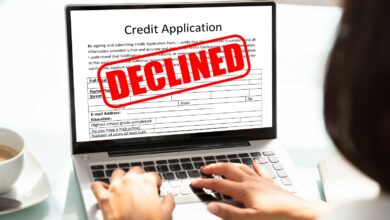Steps to take to protect yourself against rising inflation

Inflation is raring its ugly head again. It’s time to consider what you need to do to manage your money during times of rising prices for goods and services.
What’s happening: In four months from May to August the inflation rate has been running above 5 percent—the highest level in 13 years—after standing at 1.4 percent in January and 1.7 percent in February. The monthly figures are well above the target set by the Federal Reserve of 2 percent and are considered unhealthy.
Read More »Causing concern
As a result, the continuing rise in the prices of goods and services is causing some investors and businesses to become concerned.
They worry because inflation erodes the value of your savings and investments. If inflation is running at, say, 3 percent and your savings account is returning only 1 percent, your money is losing value at the rate of 2 percent a year.
Your income also will become worth less in times of higher inflation. Most salaries tend to adjust to inflation through cost-of-living increases over time, but the rises take some time to kick in. The same is true of Social Security income, which adjusts each year to the inflation rate, but the increase occurs only after the inflation has taken place. In addition, pensions that are fixed in terms of dollar income will lose a greater amount of their real value when inflation is running at a higher level.
What to do
So what should you do about this threat? Here are some tips to help you to manage higher inflation when it comes to your finances.
• Cut back on your spending
Rising prices mean you cannot buy as much as you did before on the same income. Some spending is essential, such as mortgages, utilities, car payments, and so on. You will, therefore, have to look at adjusting your budget and cutting back on non-essential expenses. These include entertainment, eating out, and grocery items you do not really need.
It becomes more important, too, to look for genuine price reductions in items you regularly buy and stock up on them if you can.
• Delay buying some items.
If it proves true that the higher inflation rate is only temporary, wait to buy higher-ticket items, such as furniture or vehicles suggests myFICO, the consumer division of FICO, a data analytics company based in San Jose, Calif. Used cars are 45 percent higher today than they were at this time last year, the company says.
On the other hand, if you believe that the inflation rate might continue at a higher than normal rate for some time you might want to buy some items, such as Christmas gifts, early as they might prove to be more expensive later in the year.
• Boost your emergency fund
Everyone should have a fund that tides them over should the unexpected occur, such as if you lose your job or if you incur a major expense that you did not anticipate. Financial advisers recommend that such a fund should be equivalent to between three and six months income.
Because this fund will have less value under rising inflation, you might consider increasing the fund along the lines of the inflation rate. If the rate continues at 5 percent, for example, invest that amount of additional money into the fund.
It is probably not a good idea to invest your emergency money in risky assets in an effort to gain a higher return as a counter to inflation. Should you face tough economic times that cause you to lose your job, for example, assets such as the stock market will suffer at the same time and your emergency fund will be considerably lower at just the time you need the money.
• Ask for a raise
Should inflation persist for some time, your salary will pay for fewer items than it did last year. A rise that is roughly equivalent to the inflation rate will help you to meet your costs. Many labor unions have negotiated a cost-of-living increase in their pay so that will help those employees to cope.
It is a good idea to prepare now for the time when your salary comes up for discussion. You might want to get together details for your performance evaluation in advance so that you can make your case for a raise.
Sound moves
It is possible that the current spike in inflation will prove to be temporary. It might be the result of supply disruptions and other issues brought on by the pandemic. As the economy returns to normal, inflation might slow back down again, but protecting your money always will turn out to be a sound move.





